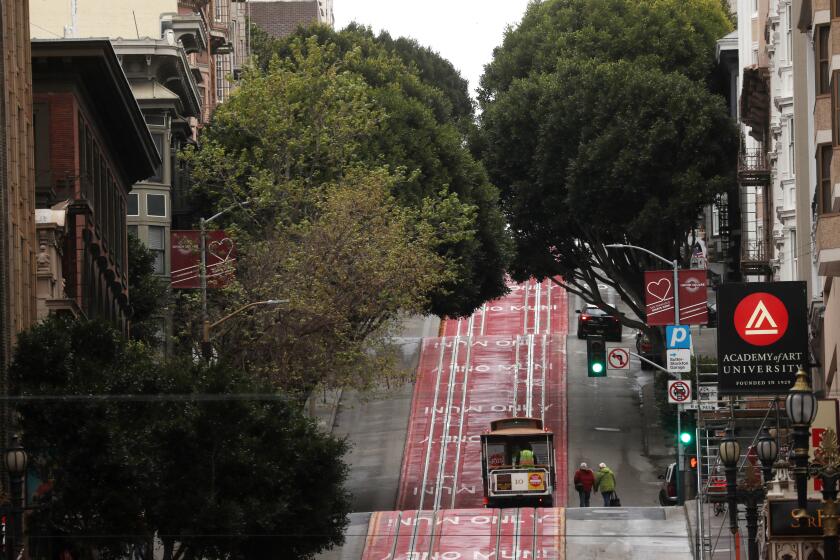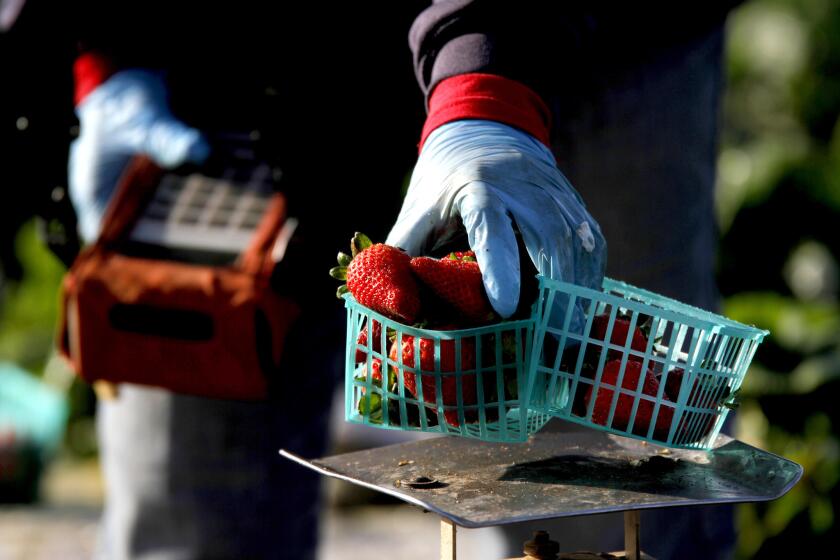Think the most isolated corners of the U.S. are safe from coronavirus? Think again
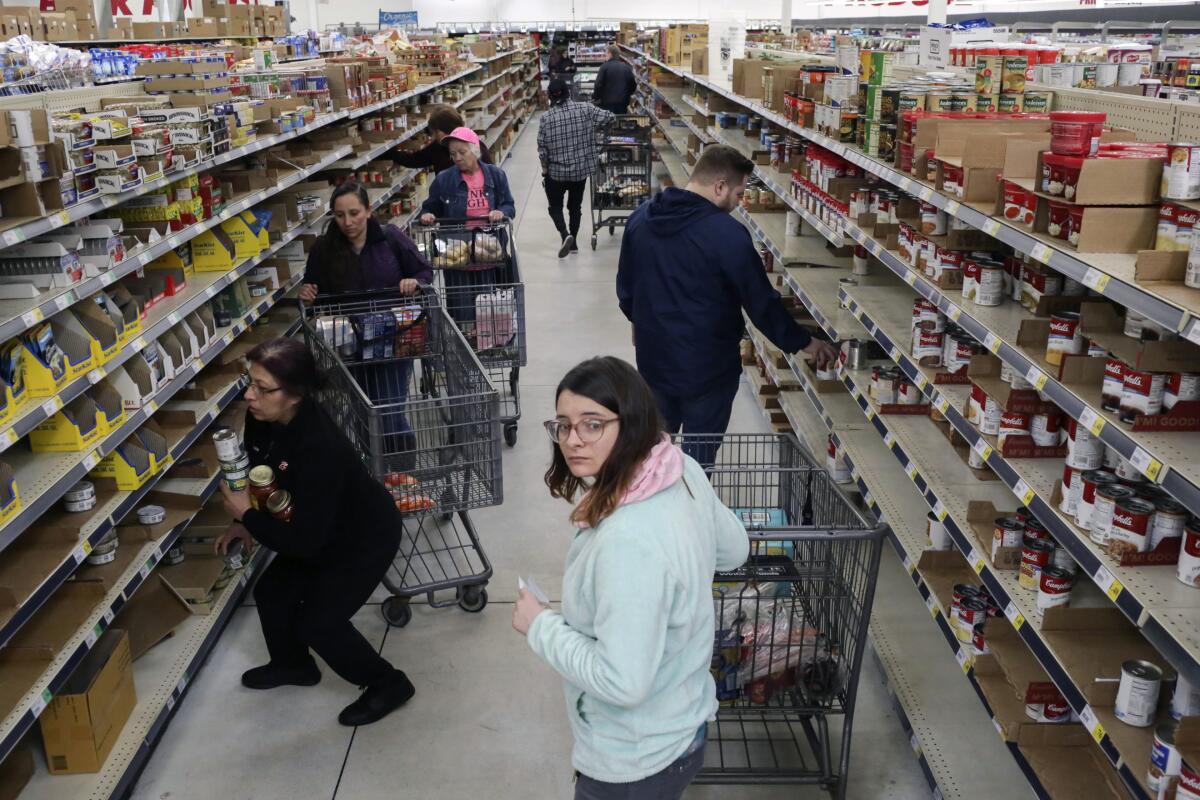
- Share via
CASPER, Wyoming — The Lyman Eagles had just walloped the Newcastle Dogies 46-34 in the first game of the Wyoming state high school basketball championships. The girls exchanged high-fives at center court. And then an announcement boomed out.
Because of the coronavirus, all fans, parents, cheerleaders and media would be banned from the Casper Events Center bleachers for the rest of the three-day tournament. The Eagles — who had driven nearly 300 sagebrush-filled miles from Lyman, Wyo., population 2,067 — headed to the locker room in tears.
Fifteen minutes later, the voice was back, this time with even worse news. The 2020 state basketball tournament, which had barely begun, was over for good.
“We were just kind of all shocked,” said sophomore Brice Hansen, 16, who had scored nearly a quarter of her winning team’s points in the March 12 game. The pandemic and its awful effects, she added, “just felt so far away, and then, all of a sudden, it was affecting us. It kind of went from zero to 100 in, like, a day.”
Even isolation could keep the coronavirus at bay for only so long. Wyoming, which has fewer people than any other U.S. state, reported its first COVID-19 case on the evening of March 11. Alaska, with just one person per square mile, fell victim to the virus the next day. Idaho, whose capital, Boise, is hundreds of miles from the next city of any size, reported its first case on Friday.
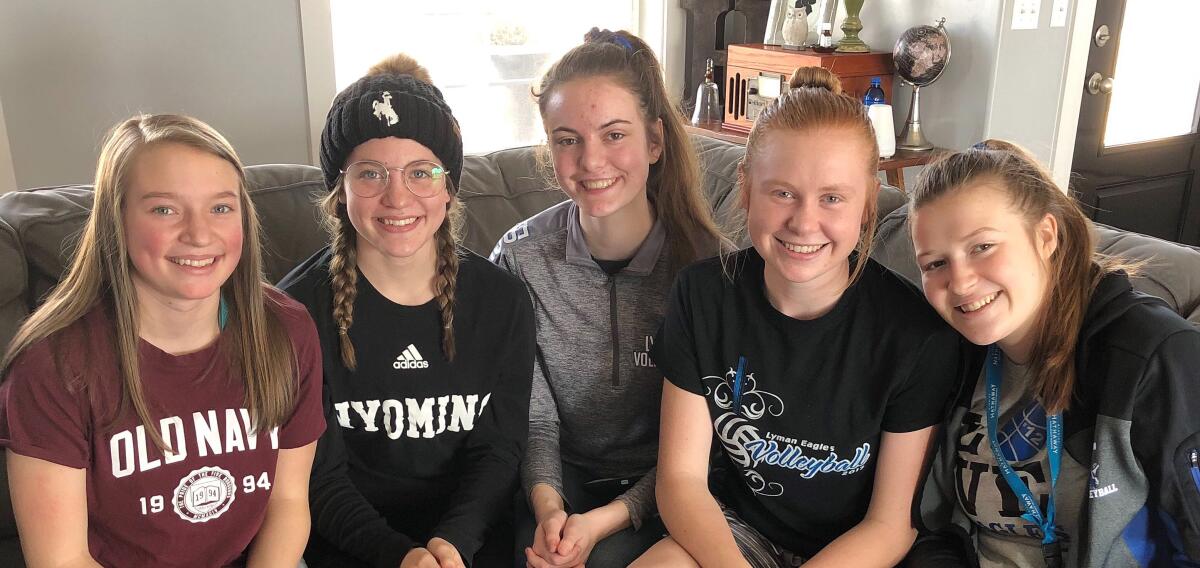
West Virginia was the final holdout. But on Wednesday afternoon, it became the 50th state infected by the pandemic that has swept the globe; shut down schools, restaurants, bars, theme parks, casinos and gyms; caused massive unemployment; canceled sporting events for athletes from kid to pro; shaken stock markets; and infuriated President Trump.
Geography gets some of the credit for the slow creep of confirmed cases into the United States’ most remote regions. Many people live in the wide-open spaces of Wyoming and Montana and Alaska because they believe in extreme social distance even in the best of times.
On the other hand, inadequate testing gets much of the blame for what could be an artificially small number of cases.
“There may be something to the notion that the more rural you are, the less likely you are to run into this virus,” said Dr. William Schaffner, professor of preventive medicine and infectious diseases at the Vanderbilt University School of Medicine. “But we all know the harder you look, the more you find.”
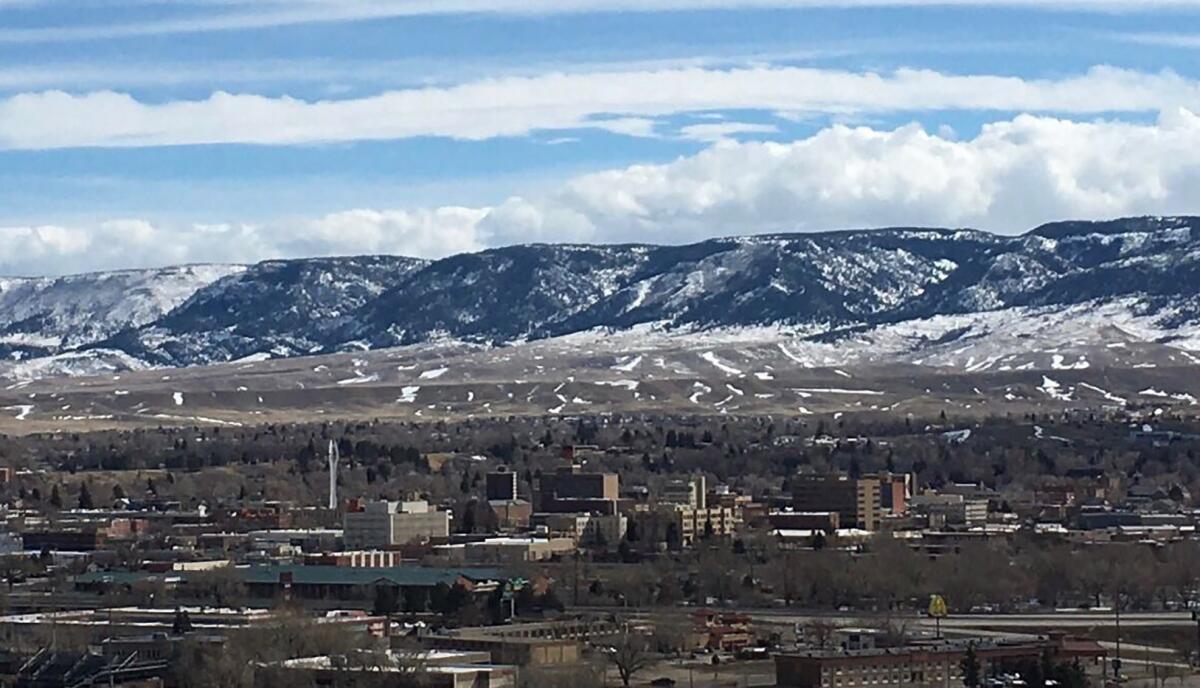
::
Wyoming’s young basketball stars weren’t the only ones sent reeling by the tournament’s untimely end. Casper, population 57,461, is home to almost 10% of Wyoming’s residents. Located on the banks of the North Platte River nearly a mile above sea level, the Oil City earned its nickname during its early 20th century boom years. That era is long gone.
On the morning of March 12, the Casper Courtyard by Marriott was 98% occupied, temporary home to three high school teams and their entourages. Twenty-four hours later, the basketball players had cleared out. The hotel was barely a third full. It has stayed that way ever since.
Lou Taubert Ranch Outfitters in downtown Casper also felt the tournament’s absence. Taubert’s has been in business for 101 years. In its 60,000 square feet of retail space, you can find portable spittoons for $18.95 or a pair of black Lucchese Ultra Caiman Belly boots for $959.95. There are saddles and lassos and fancy Western wear.
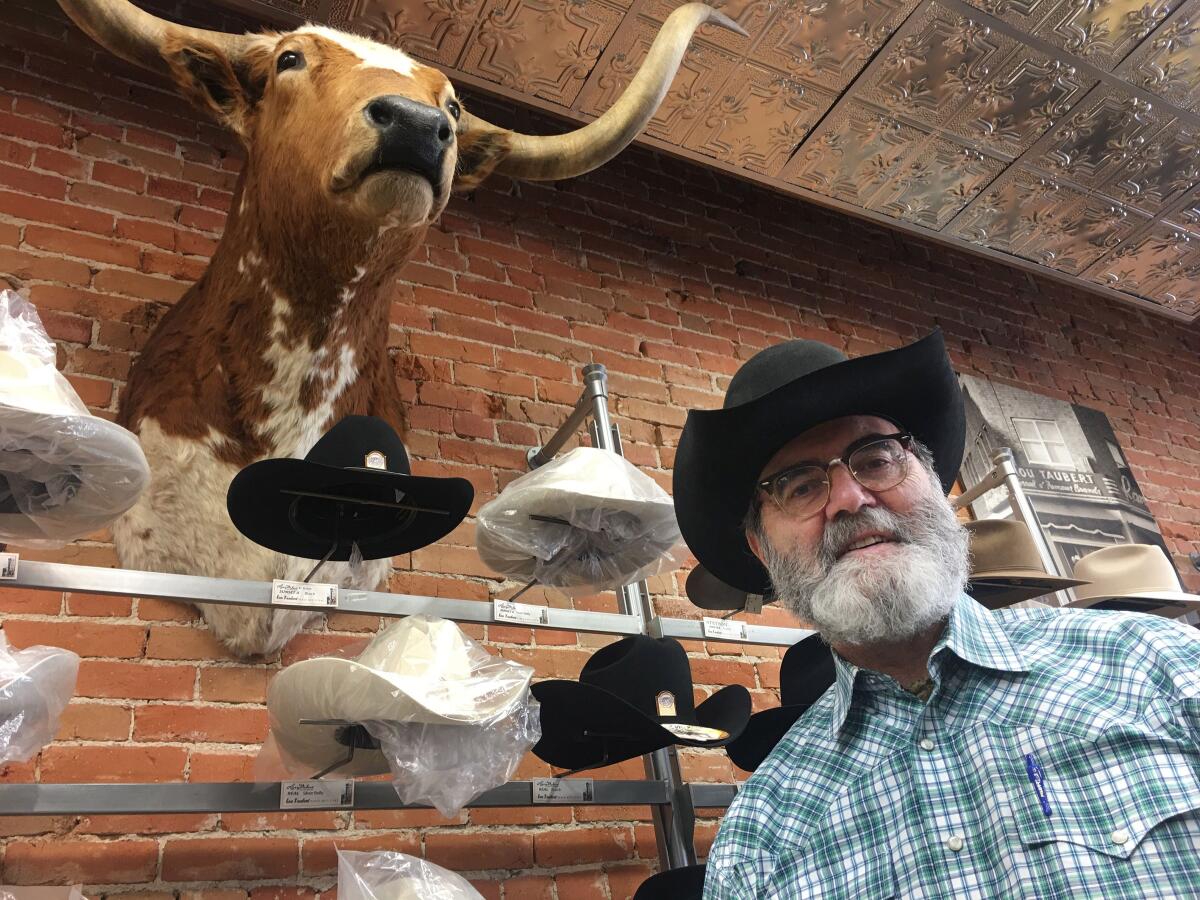
“The tournament brings a lot of out-of-town people,” said Lou Taubert, who runs the family business, “and we sure miss ’em. The future remains to be seen.... If I could snap my fingers and change this corona deal, I would.”
On Sunday, Taubert fitted Anthony Valdez, 21, with a “silver belly” gray cowboy hat to wear at his sister’s June wedding. It was a key purchase, because the civil engineering student is set to be the best man.
Valdez said he had “mixed feelings” about the virus. But Cara Valdez, the mother of the bride, said the whole thing was overblown.
“I don’t understand what a big deal it is,” said Cara, who will host the wedding in her barn. “I believe there may be a cold thing going around. It just doesn’t need to be as big a deal as it is.”
Wyoming is nowhere near as hard hit as California. The 17 cases of the coronavirus recorded in the Equality State as of Wednesday pale beside the Golden State’s hundreds of cases and double-digit deaths. No one had died in Wyoming. But even in Casper, where the closest cities of any size are hundreds of miles away, concern over the fast-moving virus is ramping up.
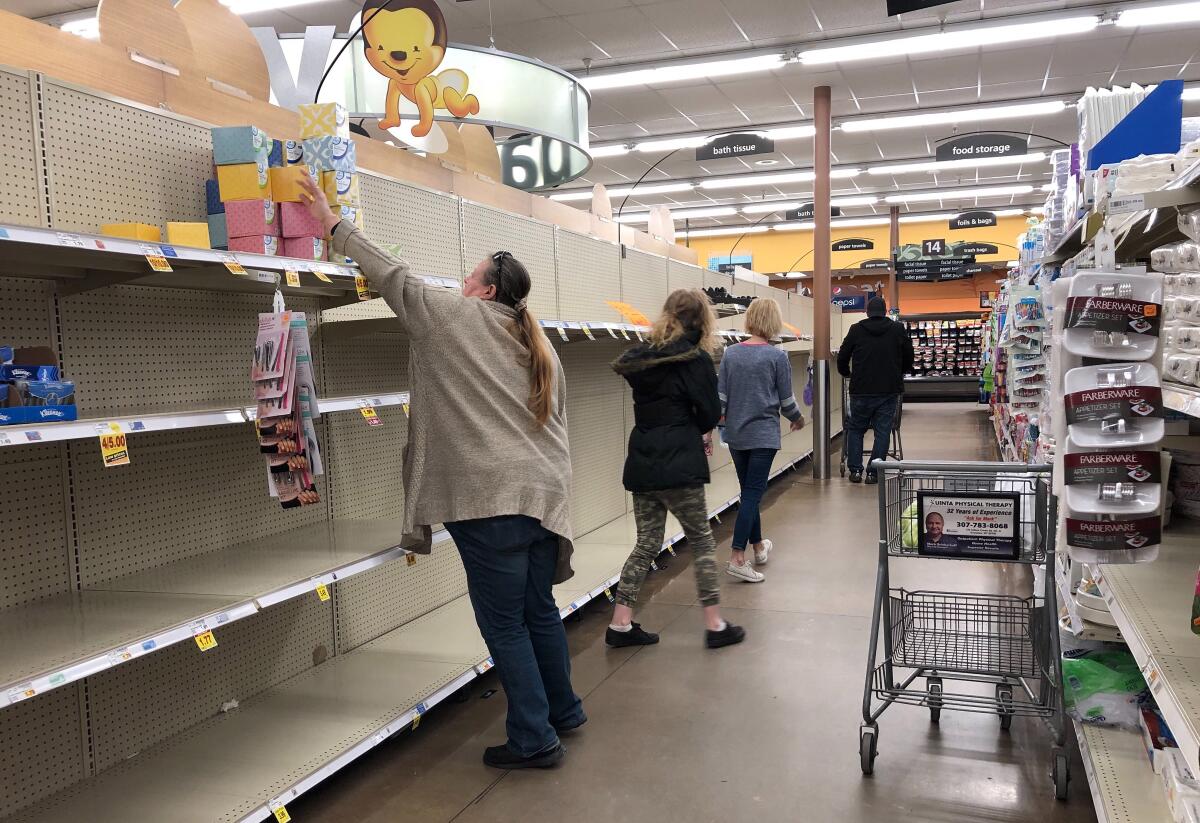
Cher’s “Here We Go Again” tour at the Casper Events Center has been postponed until October. The Home and Garden Show and the Foreigner concert are off. Casper City Hall is closed to the public, and Evansville, a Casper suburb, has closed all government offices. Late Sunday afternoon, Wyoming Gov. Mark Gordon recommended that schools throughout the state shut down until at least April 3.
“This recommendation is not necessarily based on epidemiological best practices,” Gordon’s office said in a statement, “but is an attempt to allow schools and communities to prepare to operate in a way that mitigates community spread of COVID-19.”
Small businesses like the Bourgeois Pig have been hit hard. The downtown coffee shop with its steampunk vibe is set to celebrate its first anniversary in about three weeks. If it lasts that long.
Owner Josh Tinnell said Sunday that he had about a week’s worth of bleach and toilet paper. When he went to the bank two days earlier, he told the bank staff that business was down 22%. One young teller responded: “Don’t you think [the virus is] just an election hoax?”
“One good thing about this being such a red-state, ‘aw, this is just a hoax’ kind of place is that a lot of my regulars are still coming in,” Tinnell said. “Now that I look at the effects on my business, when I worked so hard to get here, I can make it two weeks, maybe.”
Hoax emails and messages, including those about martial law and the Stafford Act, are as dangerous as the coronavirus itself, health officials say.
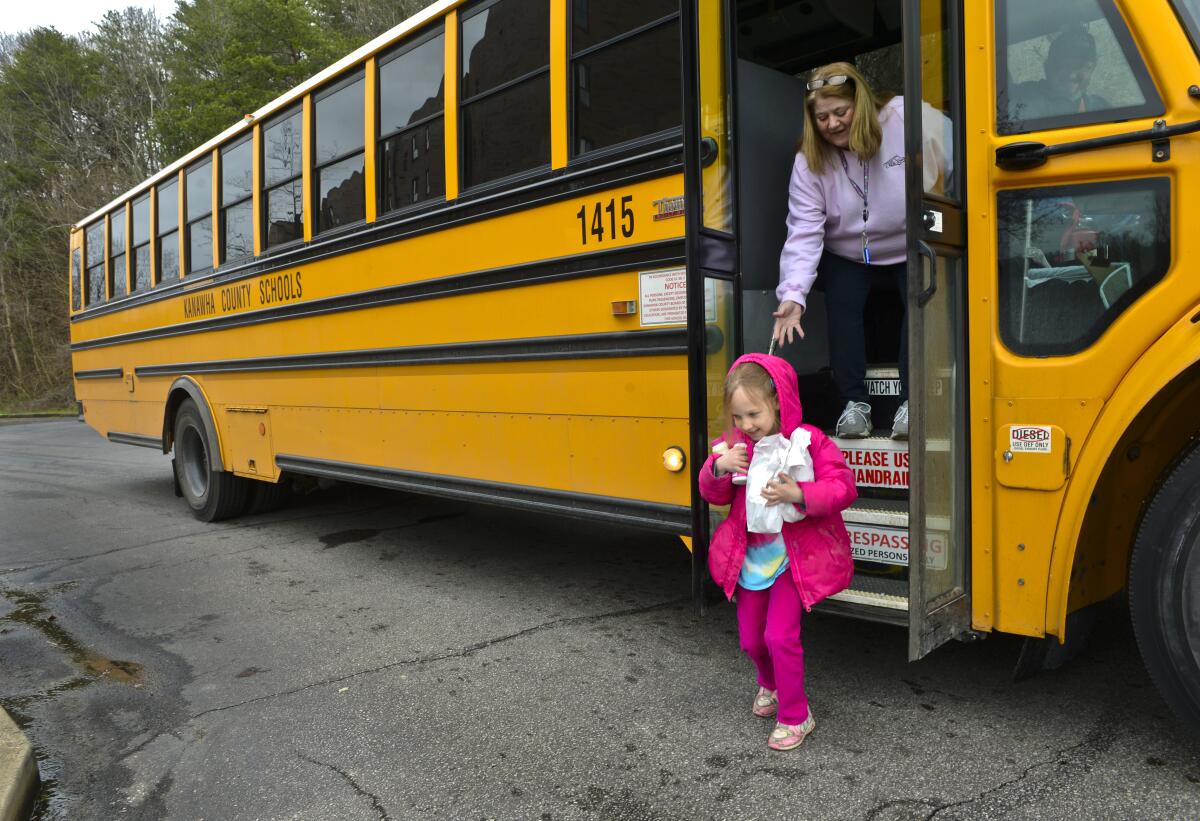
Casper-area schools are closed. Personal protective gear and virus test kits are in short supply. Churches are emptying out. Those who tuned into live.hpcc.church for the 9 a.m. service at Highland Park Community Church on Sunday saw Pastor Mike Fackler, in rumpled jeans and a brown long-sleeved shirt, raise the question on everyone’s mind.
“How are we supposed to navigate this?” he asked, as church members posted comments in a live chat on the right side of their computer screens. “I want to bring us back to Jesus.... If you look through history, there is nothing that has [caught] God off guard.”
This is also an opportunity, he said, to be “a voice of hope,” to “share the love of Jesus with the world starting right here in our neighborhoods.”
How, you ask? Just listen, he said, to the man in the White House.
“Our president has done something awesome,” Fackler said. “He has called the entire nation to pray.”
::
Five hundred miles away, in Evanston, population a hair under 12,000, it was impossible find toilet paper on Saturday morning, between word of the state’s second confirmed case of COVID-19 and its third.
For those who fear the coronavirus, it’s impossible to be too prepared. Which is why Walmart had been wiped out of toilet tissue before lunchtime. Rip’s Grocery was a TP desert. The Dollar Tree, ditto. A hard-shopping trio filling the back of a Jeep Cherokee in the parking lot of Smith’s Food and Drug called out a friendly warning:
“Don’t go in there, it’s a madhouse,” said Rebecka Neely, a 29-year-old dental assistant, as she recovered from the ordeal of a normal week’s shopping, an experience that aged them all. “We were all 12 when we went in.... We’re an open-carry state. People are walking around with their guns on their hips. They want to be prepared.”
Smith’s paper goods aisle had been plundered. No toilet paper. No paper towels. A few boxes of tissues stood lonely vigil. Every single bag of potatoes was gone. Shelves of Hamburger Helper, Kraft Mac & Cheese, pasta and rice resembled gaptoothed smiles.
The produce section was in so-so shape, but when Maria Escalante stopped by a day earlier, she said, “people were standing around in disbelief.” Escalante and her mother own Ana’s On Main Street, known for tamales and strong coffee. She had to put together a fruit tray, but all she could find were two green avocados.
“The town is going crazy,” she said. “There’s no food. That’s when I worry — when I can’t find a tomato or a banana.”
California’s nearly $50-billion agricultural industry is bracing for a potential labor shortfall that could hinder efforts to maintain the nation’s fresh food supply amid the widening coronavirus outbreak.
There was one obvious place left to hunt for that elusive roll of toilet paper on Saturday afternoon in tiny Evanston. Murdoch’s Ranch & Home Supply, the kind of place where you can buy a 12-gauge shotgun or a $999.99 rifle scope, a Sig Sauer, a Beretta, sacks of feed or New Hampshire Red pullet chicks for $3.49 each.
There on a high shelf in the camping gear aisle were five packs of toilet paper, perhaps the only rolls in the entire city. But not just any TP: specially formulated toilet tissue for use in RVs and on boats. As precious as gold.
Four rolls for $6.49, around twice as much as grocery store kind.
That is, of course, if you could find it.
More to Read
Sign up for Essential California
The most important California stories and recommendations in your inbox every morning.
You may occasionally receive promotional content from the Los Angeles Times.

